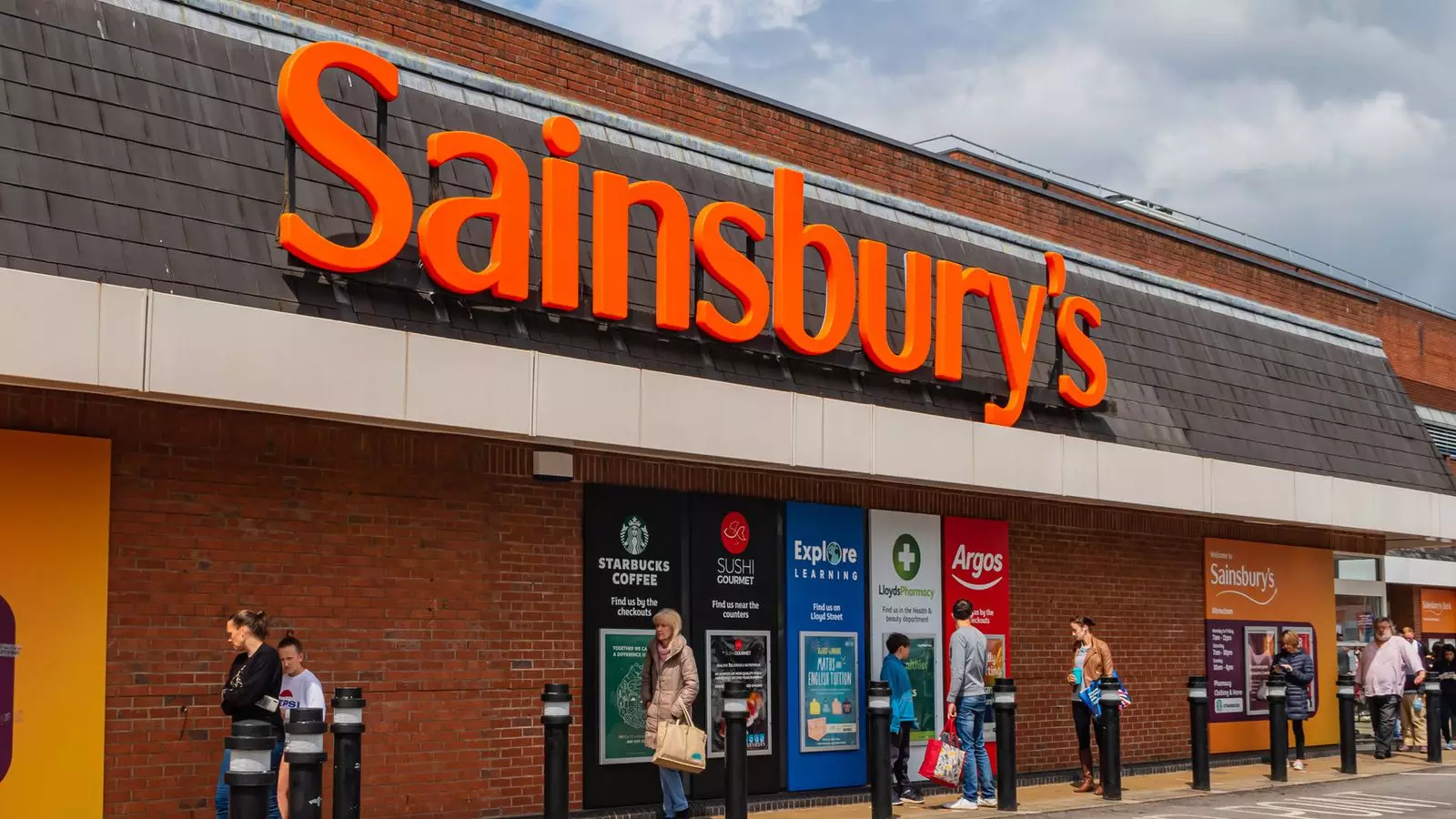In a significant restructuring move, Sainsbury’s has announced the elimination of over 3,000 jobs across its organization. This decision, rooted in an apparent necessity to streamline operations, notably affects roles within its head office and senior management. The supermarket chain, which has been a staple in British retail, is also set to close all 61 of its in-store cafes, citing diminishing customer demand as a key factor behind this decision. These sweeping changes come as Sainsbury’s grapples with escalating costs and a tightening economy.
The Rationale Behind the Cuts
Sainsbury’s CEO, Simon Roberts, articulated the challenging cost environment that prompted these painful choices. The decision to cut jobs and close cafes is linked to the need for greater efficiency and effectiveness in existing operations. The supermarket has previously signaled the impending repercussions of raised operational costs, primarily influenced by recent budget tax measures that are expected to take effect shortly. The company is not merely reacting to market pressures; it is strategically recalibrating to maintain its competitive edge amidst rising costs.
With the backdrop of an economic climate marked by inflation and fluctuating costs, Sainsbury’s finds itself at a crossroads. The enterprise is charged with again redefining its operational strategy while aiming to improve its bottom line. Nonetheless, such drastic measures evoke a slew of ethical and social concerns, particularly surrounding their impact on the lives of affected employees. As Sainsbury’s moves forward with its strategic agenda, the sacrifices made by its workforce prompt a broader discussion about corporate responsibility and employee welfare.
The job cuts and cafe closures will occur across several regions in the UK, with specific locations such as Fosse Park in Leicestershire and Fosse Park in South Wales falling under the axe. This decision highlights the extent of the changes, with cafes that many have frequented for years becoming relics of a bygone shopping experience. In addition to the elimination of café services, Sainsbury’s will reduce offerings in hot food, patisserie, and pizza counters — once popular amenities that have failed to attract significant patronage in recent times.
While Sainsbury’s insists that these decisions stem from analytical assessments of consumer behavior, the fallout for employees and communities affected cannot be overstated. With each closure, employees face uncertain futures, and communities lose social touchpoints that once provided both sustenance and a sense of connection. The supermarket’s values and ethics in the wake of such decisions merit closer examination.
The announcement of job cuts has sparked significant backlash, particularly from labor unions. The Unite union has denounced the layoffs, labeling the actions as “corporate greed” and accusing the supermarket of exploiting its workforce during economically turbulent times. Union representatives have vowed to advocate for affected employees, highlighting the precarious position of workers amidst company-led downsizing.
Moreover, these developments raise questions about Sainsbury’s commitment to its workforce. Just weeks prior to the layoff announcement, the company awarded pay rises to its store workers, which now appears contradictory to the stark realities of workforce reductions. Such discrepancies can lead to distrust and disillusionment among employees, as they grapple with the divergent messages coming from corporate leadership.
Given the current context — with Sainsbury’s among numerous retailers anticipating ripple effects from potential tax hikes and inflation — the implications for the retail industry as a whole are significant. The underlying strain may contribute to stunted investment and a detrimental impact on job creation sector-wide. As traditional retail models evolve to adapt to market dynamics, companies must explore innovative solutions that balance shareholder interests with employee welfare.
Challenging times require imaginative thinking. For Sainsbury’s, the viable route forward encompasses not merely cost-cutting but also strategic investments in areas such as technology and customer experience enhancement. Engaging employees in conversations around future strategies will be paramount to fostering a culture of collaboration and loyalty, essential to rebuilding trust.
The transformation of Sainsbury’s amidst such challenging economic conditions positions it at a critical juncture. The upcoming months will undoubtedly be a test of its resilience and adaptability. As Sainsbury’s grapples with the consequences of its recent decisions, stakeholders — from leadership to everyday customers — must consider the road ahead carefully. Balancing financial sustainability with ethical considerations will be vital for the grocery giant to thrive in a competitive and often unforgiving retail landscape. As the situation unfolds, the conversation surrounding corporate responsibility, employee treatment, and the future of retail continues to grow in significance.

